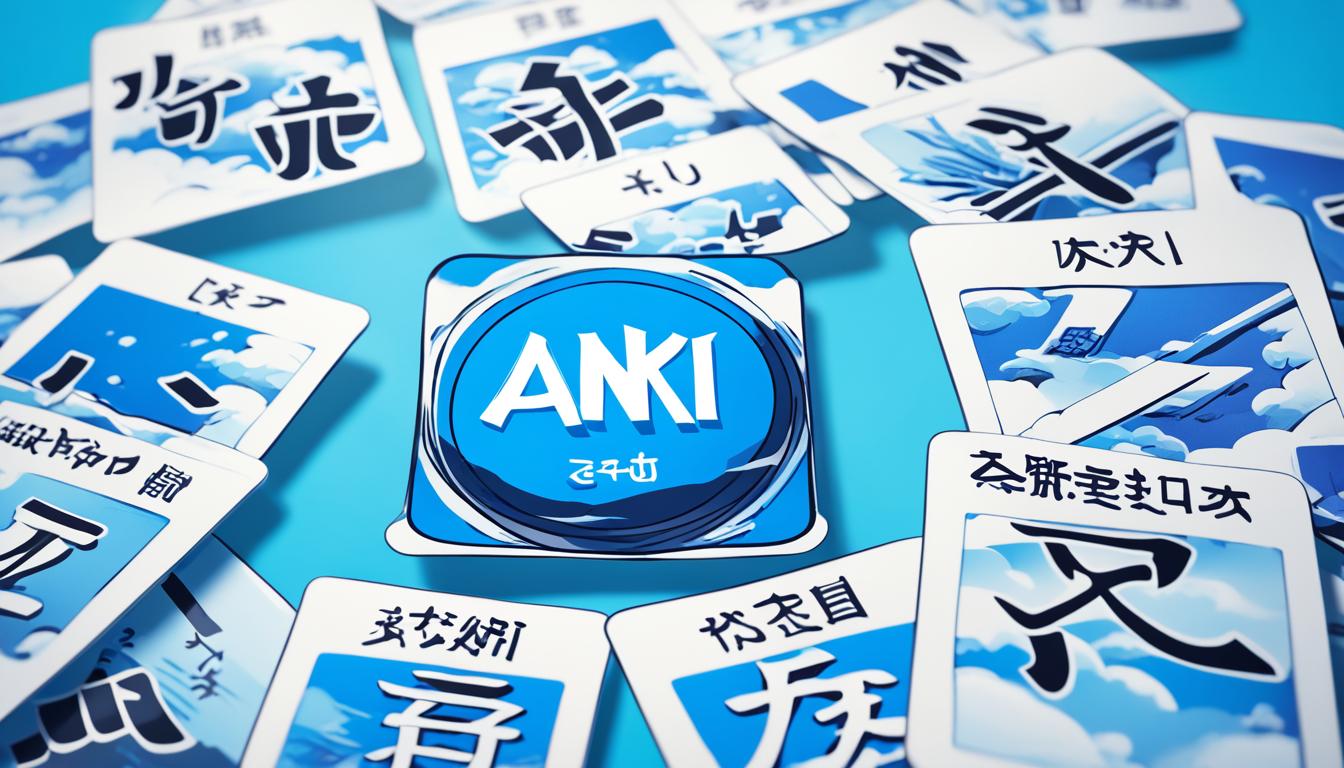Welcome to this informative article where we explore the meaning and cultural significance of “Anki” in Japanese. Whether you are interested in language learning, studying for exams, or improving your memory, understanding the concept of Anki can greatly benefit your journey. So, let’s dive in and uncover what Anki is all about!
Meaning and Grammar
Anki, a Japanese word, translates to “memorization” in English. It symbolizes the act of retaining information in one’s mind through dedicated practice. In Japanese grammar, “Anki” serves as a noun and is used to describe the process of memorizing. With its origins deeply rooted in Japanese language and culture, Anki has gained widespread recognition as a valuable tool for learning.
How to Pronounce and Equivalent Words
When pronouncing “Anki,” the ‘a’ is pronounced as in “car,” the ‘n’ is pronounced as in “no,” and the ‘ki’ is pronounced as in “key.” As an equivalent word in English, “memorization” captures the essence of Anki and the purpose it serves.
Writing in Kanji
In Kanji, Anki is written as 暗記, combining the characters 暗, meaning “dark” or “hidden,” and 記, meaning “record” or “write.” Together, these characters embody the idea of storing information in one’s memory.
Contextual and Cultural Usage of the Word
Anki holds significant cultural relevance in Japanese society, as it represents the value placed on knowledge, education, and personal development. Within the context of language learning, Anki is commonly used to reinforce vocabulary, kanji characters, and grammar concepts, enabling learners to expand their linguistic proficiency. Additionally, Anki has gained popularity among medical students in Japan who utilize it as a study tool to memorize complex medical terminology and concepts.
As you venture into the realm of Anki, you’ll discover its limitless potential for enhancing your learning experience and sharpening your memory. Now that we’ve covered the basics, let’s explore how Anki works and its algorithm in our next section.
How Anki Works and Its Algorithm
Anki, the powerful flashcard app, utilizes an algorithm known as the SM-2 algorithm to enhance the learning experience. This algorithm is the driving force behind Anki’s success in helping users efficiently retain and recall information. By understanding how Anki works and its algorithm, you can make the most of this incredible study tool.
The SM-2 algorithm tracks essential properties of each flashcard, including:
- Number of times the flashcard has been recalled correctly
- Easiness factor
- Inter-repetition interval
- Quality of the answer
These properties serve as crucial data points that Anki’s algorithm analyzes to determine when to present flashcards for review. By prioritizing flashcards that require more practice, Anki ensures optimized learning and retention.
The key to Anki’s effectiveness lies in its implementation of the spaced repetition method. This method revolves around reviewing flashcards at specific intervals, strategically spaced to reinforce learning and promote long-term memory formation. The algorithm calculates the ideal timing for review based on the flashcard’s properties, allowing users to review information at just the right moment – not too frequently or infrequently.
Ultimately, Anki’s algorithm and the spaced repetition method work harmoniously to help you master various subjects and improve your overall understanding and retention of information.
Using Anki for Language Learning
Anki is a powerful study tool that can greatly enhance your language learning experience, particularly when studying Japanese. Whether you’re focusing on vocabulary, grammar, or kanji, Anki allows you to create custom flashcards with prompts and answers tailored to your specific learning needs. By actively engaging with these flashcards on a daily basis, you can reinforce your understanding of key language concepts and integrate them into your long-term memory.
One of the great advantages of using Anki for language learning is its flexibility. You can customize your study materials to align with your textbooks, online resources, or even your personal learning experiences. This allows you to create a comprehensive set of flashcards that reinforce the specific language skills you need to develop.
With Anki’s spaced repetition method, you can study language materials at optimal intervals, ensuring effective memorization. The algorithm behind Anki determines when to show you flashcards based on your previous performance, prioritizing those that require more practice. This way, you can focus on areas where you need the most improvement and maximize your learning efficiency.
By incorporating Anki into your language learning routine, you can improve your retention and recall of vocabulary, grammar rules, and kanji characters. Consistent daily practice will gradually build your language skills, making them more automatic and natural over time.
Personalizing Your Anki Experience
One of the key benefits of Anki is its ability to adapt to your individual learning style and goals. You are not limited to pre-made flashcards; instead, you can tailor your study materials to suit your specific needs. Additionally, you can include additional information on your flashcards, such as professor’s comments, mnemonic devices, or even images and videos. This customization enhances your understanding and retention of the language, facilitating a more personalized and effective learning experience.
Anki as a Study Tool for Medical Students

Anki has become an invaluable study tool for medical students, revolutionizing the way they memorize vast amounts of information. With Anki, medical students can create personalized flashcards encompassing important concepts, medical terminologies, and essential procedures that they need to remember throughout their education and clinical practice.
The key to Anki’s effectiveness lies in its implementation of the spaced repetition method. This method allows students to review flashcards at optimal intervals, reinforcing their learning and facilitating long-term retention. By spacing out the repetition of information, Anki helps combat the forgetting curve and ensures that crucial medical knowledge stays fresh in the mind.
To maximize the benefits of Anki as a study tool, it is recommended that medical students create flashcards immediately after each lecture or study session. This proactive approach enables students to convert their learning into concise and targeted flashcards, making it easier to revise and commit the information to memory.
Consistency is key when using Anki. Regular and dedicated review sessions are essential to reap the full benefits of this powerful study tool. By incorporating daily flashcard review sessions into their study routines, medical students can optimize their learning, improve their retention, and ultimately enhance their performance in exams and clinical practice.
Anki for Personalized Learning and Memorization
Anki is a powerful tool that can be customized to cater to your individual learning needs and goals. With Anki, you have the ability to create personalized flashcards that are specifically tailored to your subjects of interest, career aspirations, or any other areas you want to focus on.
One of the key advantages of Anki is its flexibility in allowing you to include additional information in your flashcards. You can incorporate professor’s comments, tricky questions, or even images and videos that complement your learning materials. This personalized touch enhances your understanding and helps you recall information more effectively.
Imagine studying anatomy and being able to include detailed diagrams or interactive 3D models in your flashcards. This visual representation aids in visualizing complex concepts and fosters a deeper understanding of the subject matter.
Furthermore, Anki’s customization options allow you to adapt your learning experience to suit your preferred learning style. Whether you thrive on repetition, prefer visual cues, or benefit from auditory aids, Anki can accommodate your personal preferences. This personalized learning experience promotes active engagement, making your study sessions more enjoyable and productive.
By harnessing the power of Anki for personalized learning and memorization, you can unlock your full potential and maximize your academic or professional growth.
| Benefits of Anki for Personalized Learning | Enhanced Memorization | Customizable Learning Experience |
|---|---|---|
| 1. Tailored flashcards for individual subjects, interests, or career aspirations | 1. Optimal retention and recall of information | 1. Personalized learning according to individual preferences |
| 2. Inclusion of additional information, such as images and videos | 2. Deeper understanding of complex concepts | 2. Adaptation to preferred learning styles |
| 3. Active engagement and enjoyment in the learning process | 3. Increased efficiency in study sessions | 3. Promotion of self-directed learning |
Advantages and Limitations of Anki
Anki is a powerful learning tool that offers several advantages to optimize your study experience. First and foremost, Anki has proven its effectiveness in enhancing memorization. By utilizing the spaced repetition method, Anki helps you review and reinforce information at optimal intervals, leading to increased retention and recall capabilities.
Another advantage of Anki is its flexibility. You have complete control over creating and customizing your flashcards to suit your specific learning needs. Whether you’re studying languages, medical terminology, or any other subject, Anki allows you to tailor your study materials to focus on the areas you need to improve.
Moreover, Anki optimizes learning by decreasing study time. Through its algorithm, Anki prioritizes flashcards that need more practice, ensuring you’re spending your time reviewing the most challenging concepts. This efficient utilization of study time enables you to cover a wider range of material and make progress more quickly.
However, it’s important to acknowledge the limitations of Anki. While it is a valuable tool, it should be used as a supplement to other study materials rather than a standalone solution. Anki alone cannot replace a thorough understanding of concepts or the development of strong study skills.
Consistency and daily use are crucial for optimal results with Anki. Skipping or infrequent use may lead to decreased effectiveness and hinder your progress. Incorporate Anki into your study routine and allocate dedicated time each day to review your flashcards, even if it’s only for a few minutes. Consistent review will reinforce your learning and maximize the benefits of Anki.
Incorporating Anki into Your Study Routine
Are you looking for a powerful tool to enhance your study routine and boost your learning? Look no further than Anki – a versatile flashcard application that can revolutionize the way you retain information. By incorporating Anki into your daily learning, you can solidify your understanding of key concepts and improve your long-term memorization skills.
To get started with Anki, it’s essential to create flashcards regularly after lectures or learning sessions. Keep your flashcards concise and focused on concepts that you have already learned and understood. This targeted approach will allow you to reinforce the material effectively.
It’s crucial to allocate dedicated time each day to review your Anki flashcards. Take advantage of short breaks or idle moments to delve into your flashcard deck. Even a few minutes of consistent Anki review every day can yield significant progress in long-term memorization.
Beyond the basic features, Anki offers customization options to personalize your learning experience. Take advantage of these features to tailor your flashcards to your preferences and needs. This flexibility ensures that Anki becomes an integral part of your study routine, helping you achieve your learning goals effectively.

